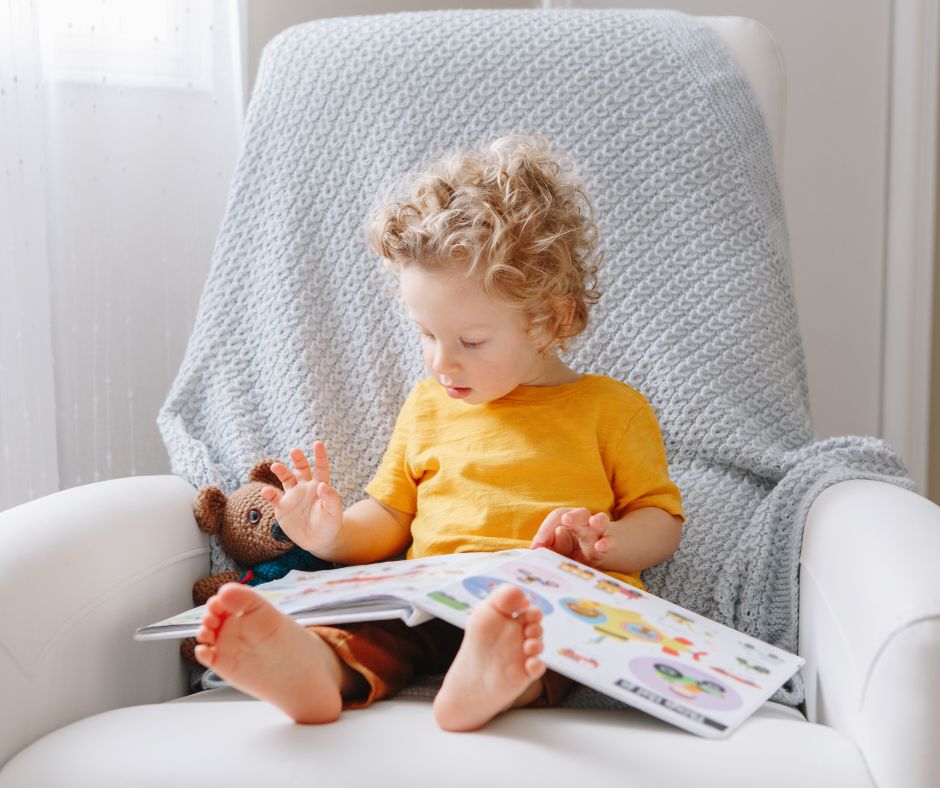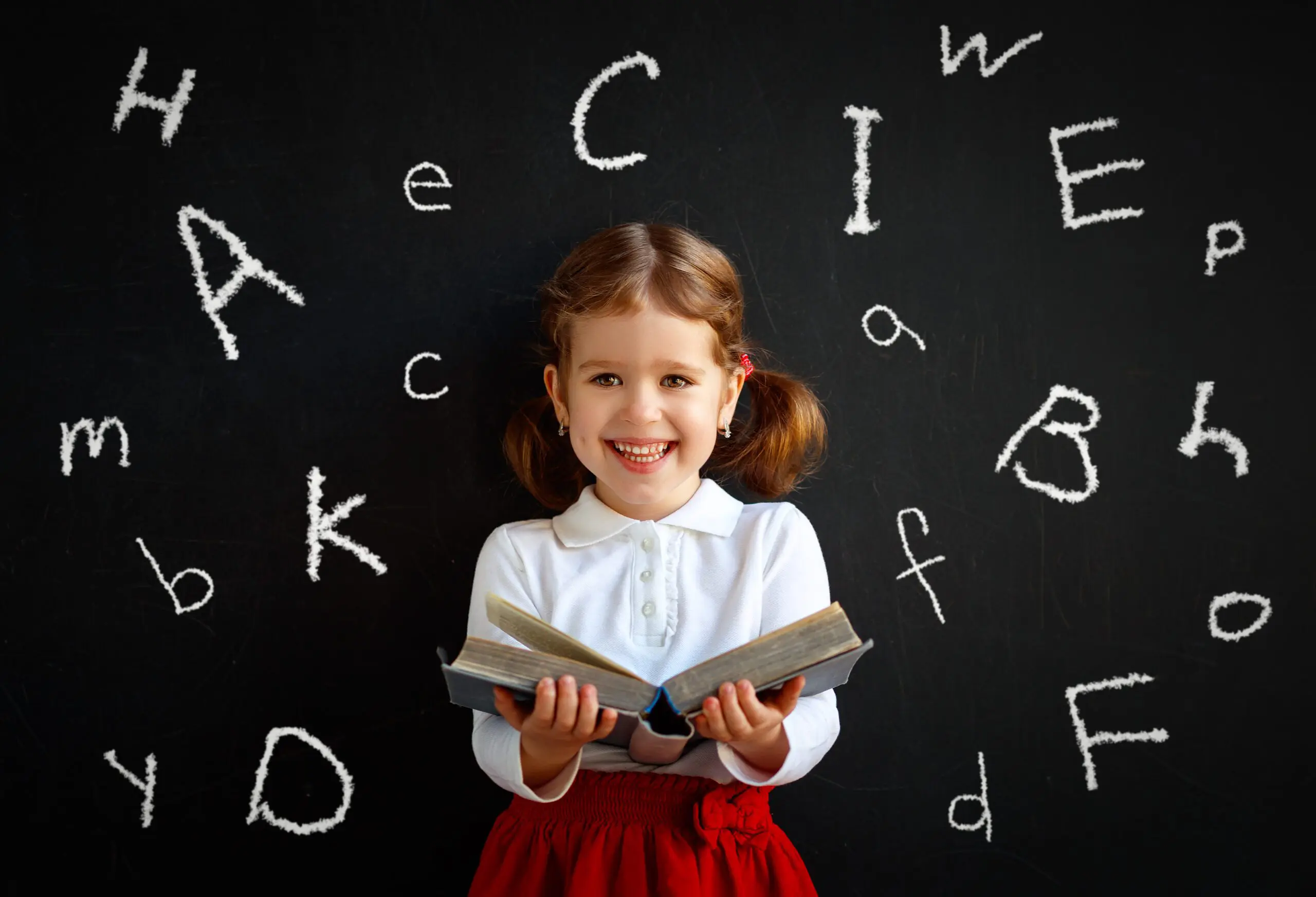Understanding pre-k developmental milestones is crucial for parents and educators in Yardley, PA. These milestones encompass critical cognitive, social-emotional, physical, and language development, providing a comprehensive view of a child’s growth.
At Children’s Central Child Care, we emphasize nurturing these aspects through our structured, supportive curriculum. By recognizing and fostering these milestones, we ensure each child is on the right path to academic and personal success.
Understanding Pre-K Milestones: Explore the Cognitive Skills Your Child Will Develop
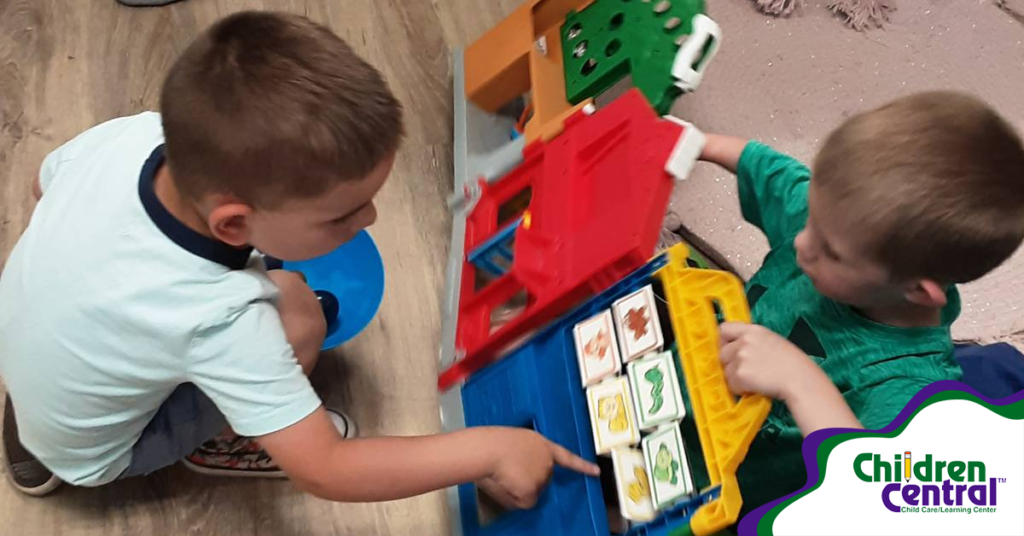
Understanding pre-k milestones is vital in tracking their cognitive development as your child begins their educational journey. Children’s Central Child Care focuses on nurturing these cognitive skills to ensure your child is well-prepared for future academic success.
Problem-Solving Abilities
Problem-solving is a cognitive skill that children develop in their pre-k years. This involves:
- Identifying and Solving Simple Problems: Children learn to recognize problems and think of solutions at this stage. For instance, they might figure out how to build a taller block tower or determine the piece to complete a puzzle.
- Developing Critical Thinking Skills: Children learn to understand cause and effect by encouraging curiosity and questioning. Activities like sorting objects by size or shape help them grasp these concepts.
To support problem-solving skills, our curriculum includes engaging activities that challenge children to think creatively and logically.
Recognizing Shapes and Colors
Recognizing shapes and colors is another essential milestone in pre-k development. This skill lays the support for more complex learning in subjects like math and science.
- Identifying Basic Shapes and Colors: Children start by recognizing and naming basic shapes (circle, square, triangle) and primary colors (red, blue, yellow).
- Sorting and Classifying: They also learn to sort objects based on shape and color, enhancing their categorization skills.
Our classrooms have colorful, shape-based learning materials to make this learning process interactive and fun.
Early Math and Counting Skills
Early math skills are crucial in pre-k development, preparing children for more advanced mathematical concepts.
- Counting and Number Recognition: Children learn to count objects and recognize numbers, usually starting from 1 to 10. They begin to understand quantity and one-to-one correspondence.
- Simple Arithmetic: Basic addition and subtraction concepts are introduced through playful activities like counting blocks or using fingers.
By focusing on problem-solving abilities, shape and color recognition, and early math skills, we help children build a solid educational foundation that supports their growth and development. Our dedicated teachers and engaging curriculum ensure that each child receives personalized attention and encouragement, setting them on a path to academic accomplishment and a lifelong love of learning.
Pre-K Developmental Checklist: Key Social-Emotional Milestones to Monitor
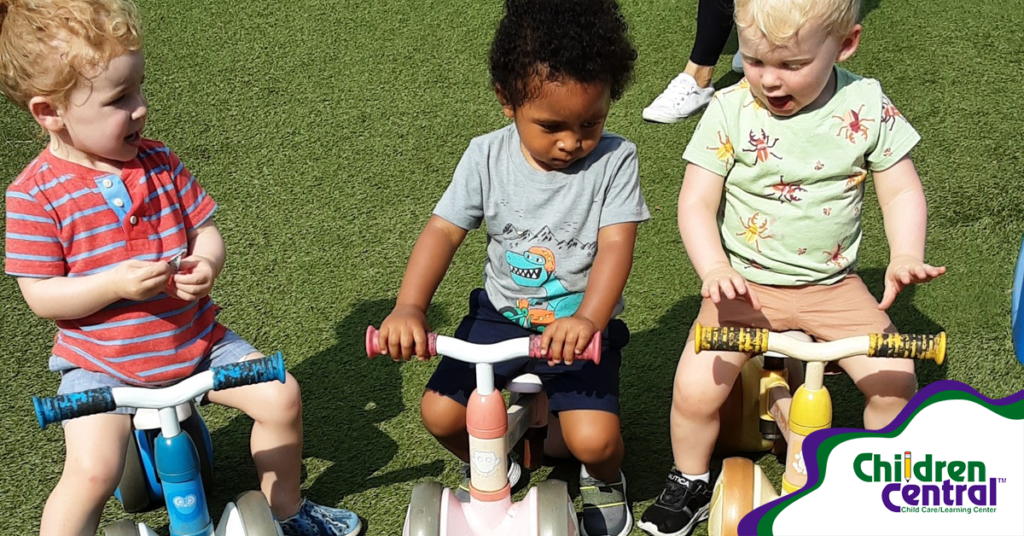
Monitoring social-emotional milestones is crucial for understanding your child’s growth and ensuring they develop essential interpersonal skills. At Children’s Central Child Care, we emphasize fostering these abilities to help children thrive in social settings. Here are the critical social-emotional milestones to look out for.
Sharing and Taking Turns
Learning to share and take turns is a fundamental aspect of social development in pre-k children. These skills help them build positive relationships and understand fairness.
- Sharing: Children begin to understand the importance of sharing toys and resources with their peers at this stage. This behavior can be encouraged through group activities where children must work together, such as building a tower or playing a board game.
- Taking Turns: Children learn to wait for their turn during games and classroom activities. This teaches them patience and respect for others’ participation.
Our curriculum includes plenty of group activities that require cooperation and sharing to foster these skills. These activities help children practice and understand these concepts in a fun, supportive environment.
Managing Emotions
Managing emotions is a critical skill for young children, enabling them to navigate social interactions and challenges effectively.
- Identifying Emotions: Children start recognizing and naming their emotions, such as happiness, sadness, anger, and frustration. This is the first step towards emotional regulation.
- Expressing Emotions Appropriately: Learning to express their feelings in acceptable ways, such as using words to describe how they feel instead of acting out physically.
Our teachers provide children with tools and strategies to manage their emotions, such as calming techniques, deep breathing exercises, and using words to express feelings. We create a nurturing environment where children feel comfortable exploring and understanding their emotions.
Forming Friendships
Forming friendships is a key milestone in social-emotional development. Building these relationships helps children develop empathy, communication skills, and a sense of belonging.
- Making Friends: Children learn to make friends by initiating conversations, playing together, and showing interest in others’ activities. They begin to understand the give-and-take nature of friendships.
- Maintaining Friendships: Students also learn to maintain these relationships by showing kindness, resolving conflicts, and demonstrating empathy towards their peers.
This environment encourages social interaction and friendship-building through group projects, playtime, and collaborative activities. It guides children in developing the social skills needed to form and sustain meaningful friendships.
Pre-K Development Stages: Milestones in Physical Growth and Coordination
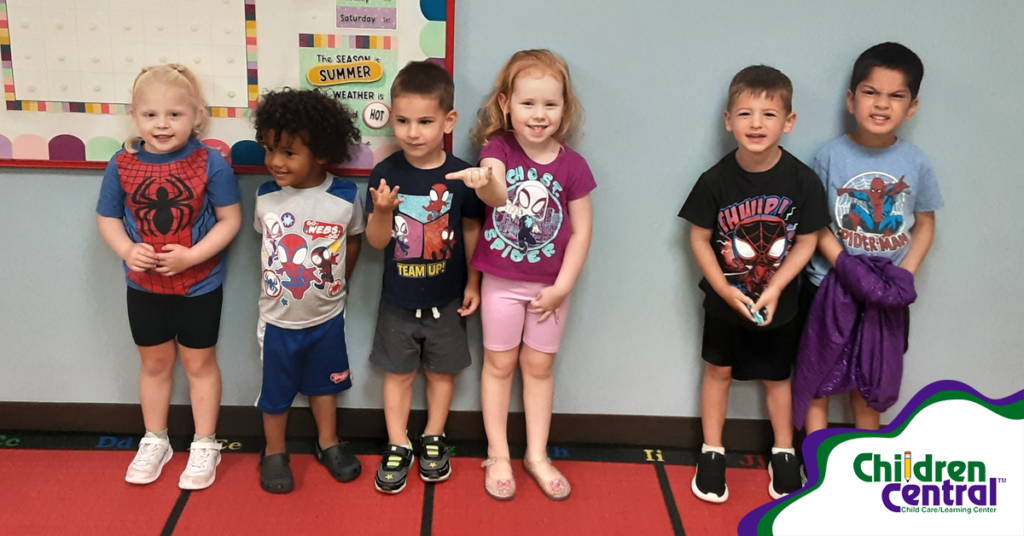
Monitoring the physical development of pre-k children is essential to ensure they are progressing appropriately in their motor skills. At Children’s Central Child Care, we provide a stimulating environment that encourages children to enhance their physical abilities.
Fine Motor Skills: Cutting, Drawing
Fine motor skills involve using small muscles in the hands and fingers, which are crucial for cutting and drawing.
- Cutting: By pre-k, children should start developing the ability to use safety scissors to cut along straight and curved lines. This skill requires coordination and control, which they can practice through arts and crafts activities.
- Drawing: Fine motor skills are also evident in a child’s drawing ability. They begin to create more recognizable shapes and figures, and their drawings become more detailed as their control over writing instruments improves.
Our classrooms have various materials that encourage the development of fine motor skills. Drawing, painting, and scissors help children practice these movements daily.
Gross Motor Skills: Running, Jumping
Gross motor skills involve larger muscle groups that enable children to run and jump.
- Running: Children typically can run with better coordination and balance by this age. They can start, stop, and change directions more efficiently.
- Jumping: Jumping with both feet off the ground is a significant milestone. Children also learn to hop on one foot and jump over small objects.
Outdoor play is a crucial part of our curriculum, providing children with opportunities to run, jump, and engage in activities that strengthen their gross motor skills.
Hand-Eye Coordination
Hand-eye coordination is vital for tasks that require the hands and eyes to work together, such as catching a ball or threading beads.
- Catching and Throwing: Pre-K children develop the ability to catch and throw a ball with increasing accuracy. This skill helps improve their reaction times and spatial awareness.
- Threading and Building: Activities like threading beads or building with blocks enhance hand-eye coordination. These tasks require precise movements and help children develop better control over their hands.
The programs include various activities designed to improve hand-eye coordination. From sports and playground games to building blocks and threading exercises, we ensure children have ample practice to develop these skills.
Language Milestones: Enhancing Vocabulary and Communication
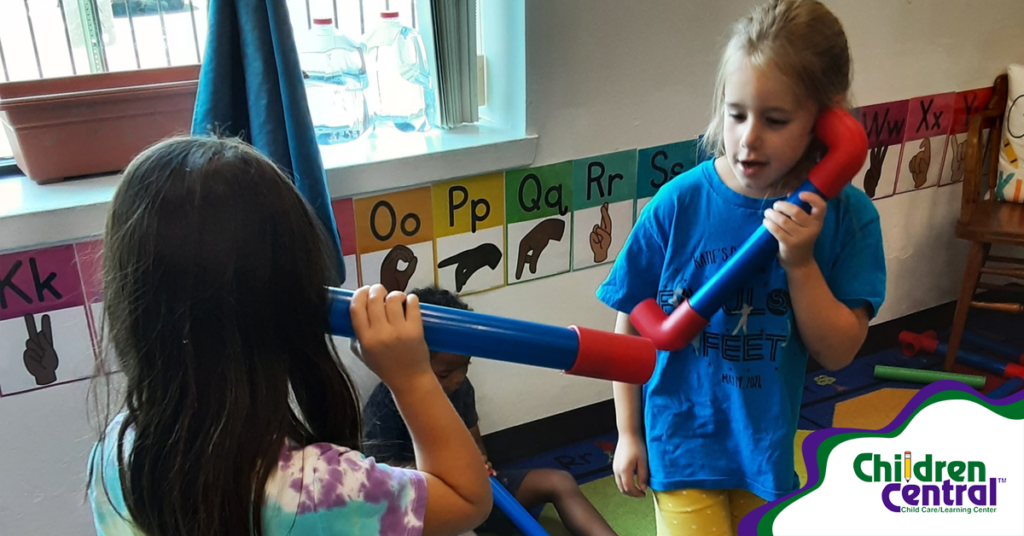
Language development is critical to a child’s growth, laying the basis for effective communication and literacy skills. At Children’s Central Child Care, we prioritize fostering these language milestones to ensure children are confident and articulate. Here’s a look at the key areas of language development in pre-k children.
Speaking in Full Sentences
By the pre-k stage, children typically progress from simple phrases to speaking in complete sentences. This milestone indicates an expanding vocabulary and a better grasp of grammar.
- Constructing Sentences: Children begin to use complete sentences, combining nouns, verbs, and adjectives to express their thoughts and needs clearly. For example, instead of saying, “Want a cookie,” they might say, “I want a cookie, please.”
- Engaging in Conversations: They start participating in more complex conversations, asking questions, and sharing experiences. This skill is crucial for social interactions and learning.
We encourage daily conversations, storytelling, and role-playing activities that stimulate language use in various contexts to support this development.
Understanding Instructions
Following instructions is an essential skill that shows a child’s ability to listen, comprehend, and act accordingly.
- Simple Instructions: Initially, children learn to follow simple, one-step instructions like “Please pick up your toys.”
- Complex Instructions: As they grow, they can handle more complex, multi-step instructions, such as “Put on your shoes, then bring your coat.”
Our classrooms integrate instruction-following into daily routines and activities, ensuring children practice and enhance this skill regularly.
Beginning to Read and Write
Early literacy skills are vital milestones that prepare children for academic success. Pre-K children start recognizing letters and sounds, the building blocks of reading and writing.
- Letter Recognition: Children learn to identify and associate letters with corresponding sounds. This skill is fundamental for phonics and reading.
- Writing Skills: They begin to write letters and their names, progressing from scribbles to more recognizable forms. This practice enhances their fine motor skills and prepares them for more structured writing tasks.
By focusing on speaking in complete sentences, understanding instructions, and beginning to read and write, we create a supportive setting where children can thrive linguistically.
Conclusion
Understanding and supporting pre-k developmental milestones is essential for nurturing well-rounded, confident children. By focusing on problem-solving, emotional regulation, physical coordination, and communication skills, we prepare children for a bright and prosperous future. Our dedicated teachers and supportive environment ensure each child receives personalized attention and encouragement, making learning a joyful and enriching experience.
Are you ready to help your child reach their full potential? Contact us today at (215) 398-1076 or visit Children’s Central Contact Page to learn more about our programs and enroll your child in a nurturing and stimulating learning environment!


